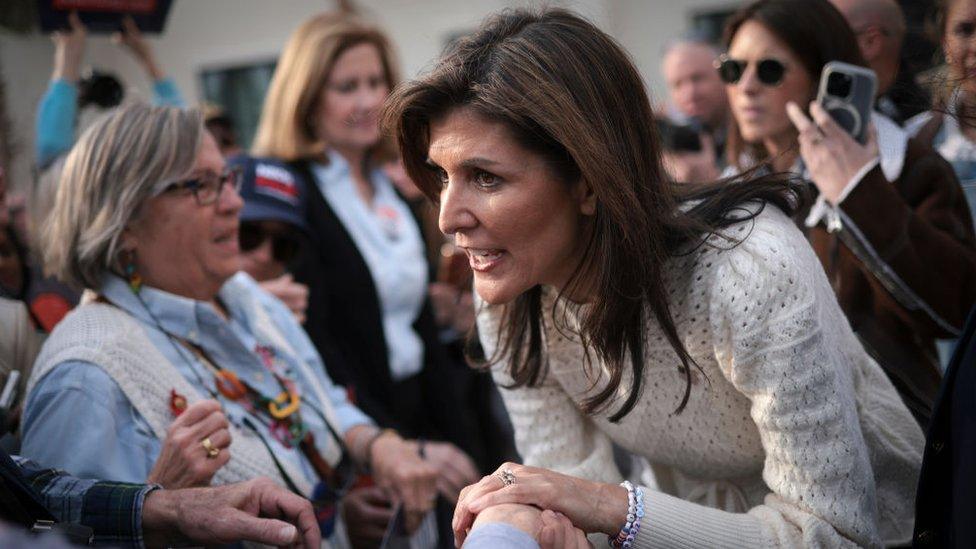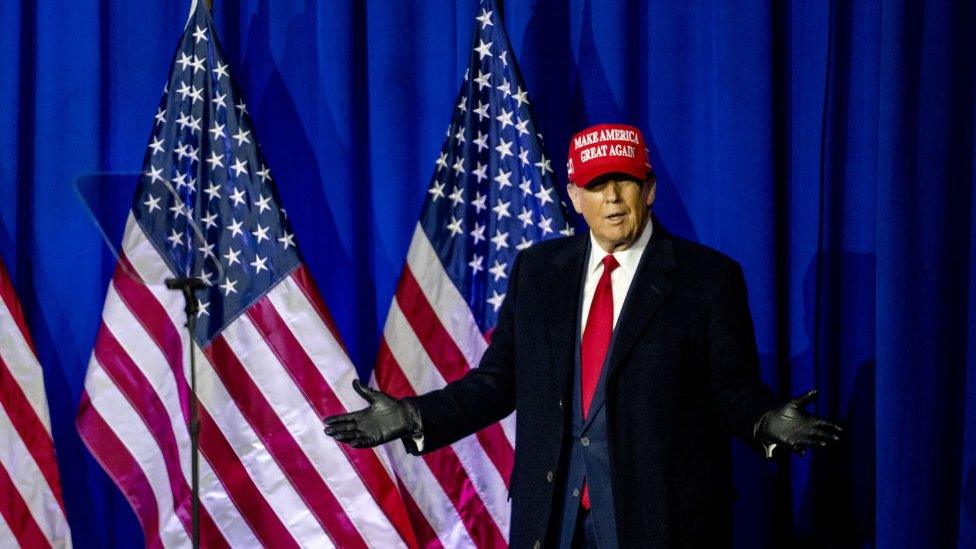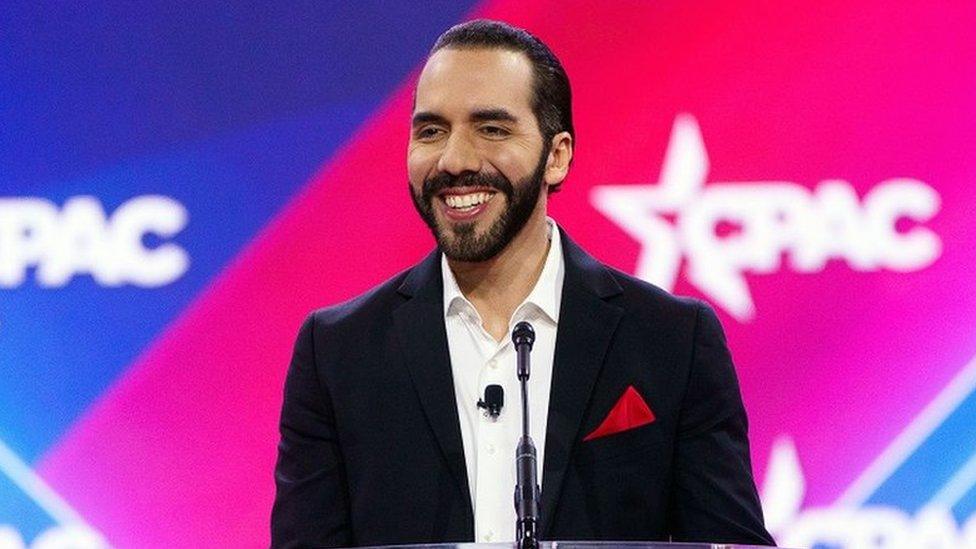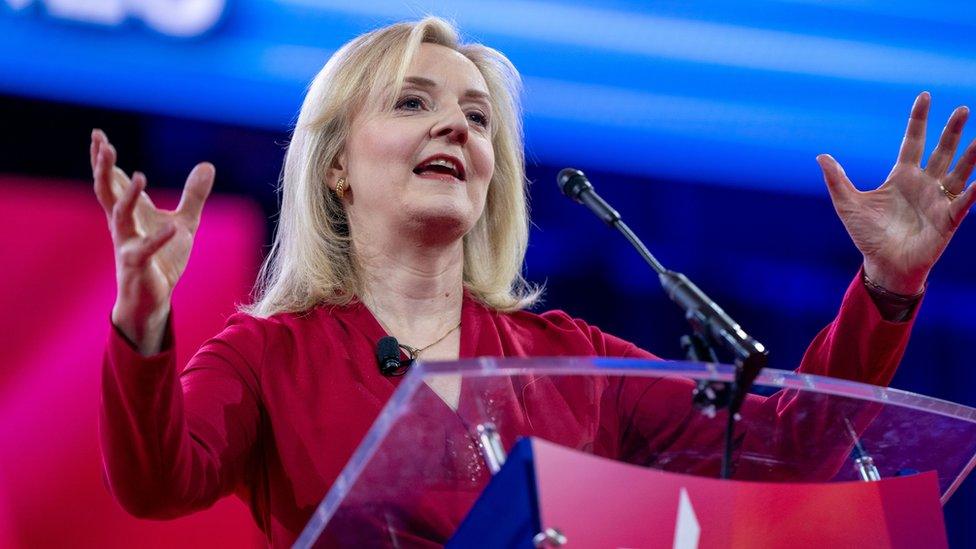Alabama IVF ruling a political gift for Democrats, headache for Republicans
- Published

Nikki Haley slightly walked back her statement of support for the Alabama ruling
An Alabama court ruling that frozen embryos created through fertility treatment are children has delivered an election-year opportunity for Democrats - and a political headache for Republicans.
US President Joe Biden's party is already campaigning on the controversy, casting November's vote as a fight over reproductive rights.
For Republicans, the row could pose an obstacle in their carefully laid plans to win back suburban women and swing voters.
At least three fertility clinics in Alabama have paused in-vitro fertilisation (IVF) since last week's ruling.
The all-Republican justices decided that frozen embryos created through IVF are considered children under state law.
While the ruling does not ban or restrict IVF, several medical providers in the state cited fears of legal repercussions as they paused fertility services in recent days.
On Thursday President Biden sought to blame the ruling on his predecessor and likely Republican challenger in this year's election, Donald Trump.
Mr Biden said in a post on X, formerly Twitter, that the Alabama decision was only possible because of the 2022 ruling by the US Supreme Court - which has three Trump appointees - to nullify abortion rights.
While many conservatives celebrated the end of Roe v Wade, it proved a potent get-out-the-vote motivator for Democrats and a messaging nightmare for Republicans.
Mr Biden's party will be hoping the Deep South fallout over IVF will prove as energising for their electoral base as the abortion issue.
Democrats are already depicting the Alabama case as what they see as a portent of further assaults on women's rights if their rivals make headway in the coming general election.
US Vice-President Kamala Harris accused Republicans of hypocrisy during a stop on her "Fight for Reproductive Freedoms" tour in Grand Rapids, Michigan, on Thursday.
"On the one hand, the proponents are saying that an individual doesn't have a right to end an unwanted pregnancy and, on the other hand, the individual does not have the right to start a family," she told an audience.
Forty-two percent of Americans have either used IVF treatments or known someone who did, according to a Pew Survey last year. That percentage rises with increased earnings - 45% among middle-income Americans and 59% for those with high-incomes.
Those individuals are more likely to be white Americans who vote Republican, and many are ones whom Mr Trump is hoping to bring back into the political fold after losing their support in 2020.

The IVF controversy could well frustrate that effort.
Shana Gadarian, a political science professor at Syracuse University, said: "In other words, restricting IVF is going to be unpopular even among conservative and Republican voters and is an extreme position not shared by most Americans."
Mr Trump has so far stayed silent on the subject. Other Republican office-holders have either avoided the issue altogether, or steered a middle ground, distancing themselves from the few hardline conservatives who do support restricting access to fertility treatment and contraception.
New Hampshire Governor Chris Sununu, a moderate Republican, called the Alabama ruling "scary" while speaking at the Politico Governors Summit on Thursday.
Senator Tim Scott of South Carolina, a potential Trump running mate, said he had not "studied the issue" when pressed by reporters on Thursday.
Nikki Haley, Mr Trump's last challenger for the Republican White House nomination, initially agreed in the wake of the Alabama court ruling that "embryos are babies".
She backtracked slightly on Thursday, telling CNN that embryos should be protected, but that Alabama "needs to go back and look at the law".
"We don't want fertility treatments to shut down. We don't want them to stop doing IVF treatments," said Ms Haley, who used fertility treatments to have her two children.
Even anti-abortion groups seemed torn on Thursday at the Conservative Political Action Conference, one of the largest annual gatherings of Republican voters.
Jessica Andreae, director of operations of the ProLove Ministries, told the BBC at the event near Washington DC that she agreed with the Alabama court that embryos should be considered human life, but added that it "is a very complex issue for me".
"I have a friend who has two dear children through fertility treatment," she said. "And any human life, however it's brought into this world, is a gift."
How Republicans manage that balancing act could prove decisive as the presidential election looms.
With additional reporting from Francesca Gillett

More on the US election
Explained: A simple guide to the US 2024 election
Analysis: Where Biden v Trump will be won and lost
Policies: What a Trump second term would look like
Recap: The Trump story to date

- Published23 February 2024

- Published23 February 2024
